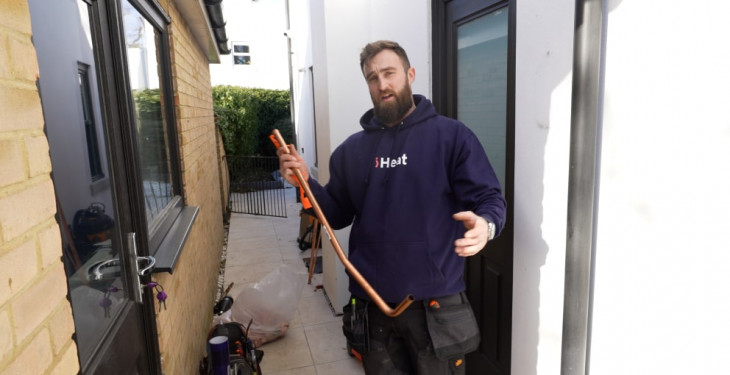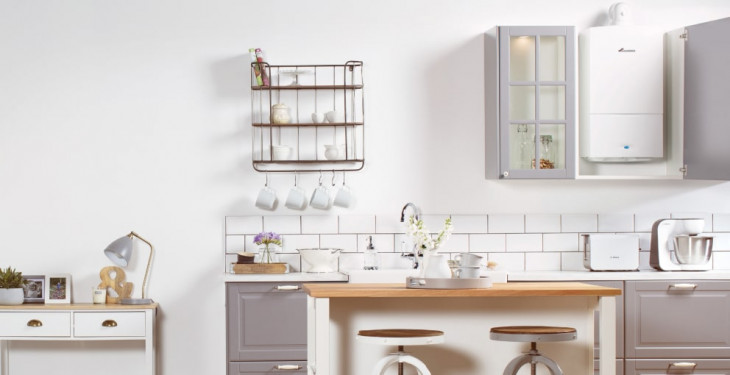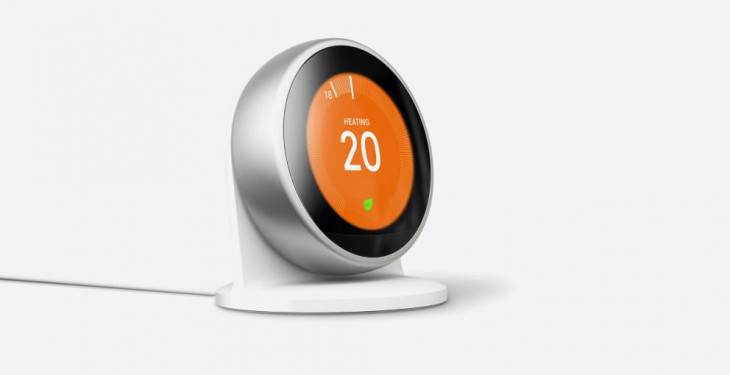

Written by Stephen Day
Gas Safe Engineer
Updated: 6th February, 2026
Heating your home should not be a decision ruled by fear of overspending on your bills, especially with the affordability of highly efficient gas boilers nowadays.
Get a new boiler quote, save up to £550 per year (0% APR available).

In this blog we’ll be exploring the simplest, most convenient and cheapest way to heat your home.
A gas boiler is a popular choice for many homeowners in the UK, and for good reason. Not only is it a cost-effective way to heat your home, but it is also relatively easy to install and maintain.
Get a quote in 60 seconds, fitted as fast as next day!
0% APR finance available.
One of the main reasons why gas boilers are cheaper than other heating options is that natural gas is relatively inexpensive.
This means that the fuel costs for a gas boiler are much lower than for other types of heating systems, such as oil or electric. In addition, gas boilers are generally more efficient than other heating systems, which means that they require less fuel to heat your home.
Another reason why gas boilers are cheap is that they are relatively simple to install and maintain for a Gas Safe engineer. This means that installation costs are generally lower than for other types of heating systems, and maintenance costs are also lower.
Gas boilers are also more reliable than other heating systems, which means that they are less likely to break down and require expensive repairs.
Get a quote in 60 seconds, fitted as fast as next day!
0% APR finance available.
Gas boilers are a popular choice for many homeowners because they are relatively cheap compared to other heating systems. Here are a few reasons why:
Before we dive into the specifics of cost savings, it’s important to understand how boilers are rated for efficiency.
ErP stands for Energy-Related Products and is a way of measuring an energy consuming appliance, such as a boiler’s, efficiency in converting the energy it uses into the desired product, heat for your property and its water.
ErP was introduced in 2009 by the European Union in order to increase the clarity of an appliance’s function and aid in the sharing of information from manufacturer to consumer, all the while promoting an eco-consciousness for both.
This aspect of ErP is to inform consumers with complete transparency, the energy efficiency of the product they are buying, and its subsequent likelihood of affecting their energy bills.
Appliances are rated in energy efficiency classifications from G to A (A+++ for certain types of appliance); the higher the assigned alphabetical rating, the more efficient the appliance is in terms of its energy usage.
Formerly SEDBUK (Seasonal Efficiency of Domestic Boilers) were responsible for boiler energy ratings, the ErP directive replaced them in the majority of cases for modern appliances.
Some manufacturers still attach a SEDBUK rating to their products, and operate a similar alphabetical classification system.
Naturally, the newer a gas boiler system, the more efficient it is due to engineering and design progression.
Outdated or failing systems could be the reason for your shock when seeing your monthly energy bills.
Most UK boilers are running at 80% energy efficiency with some antiquated models operating at 60% or less! These sub optimal levels of output are as avoidable as they are shocking.
Age of Boiler | Efficiency Percentage | Efficiency Rating |
0+ Years | 90% + | A |
10+ Years | 85% + | B/C |
15+ Years | 80% + | C/D |
20+ Years | 70% + | E/F |
25+ Years | 60% + | G |
The direct correlation between boiler age and its efficiency is clear to see in the newer systems’ ErP, so it may be worth upgrading your model to an energy efficient boiler. check out our handy guide on the most energy efficient boilers.
Another reason why gas boilers are cheap is that natural gas is widely available and easy to access. In the UK, the majority of homes are connected to the gas grid, which means they can easily access natural gas.
This makes it cheaper and more convenient to use gas boilers compared to other heating systems that rely on more expensive fuels like oil or electricity.
The cost of natural gas is also relatively cheap compared to other fuels, with the average cost of natural gas in the UK around 3.8 pence per kWh, while the cost of electricity is around 16.36 pence per kWh.
This means that running a gas boiler is much cheaper than running an electric boiler or using electric heaters.
Overall, gas boilers are a cheap and efficient way to heat your home. They are widely available, easy to access, and cost-effective to run.
If you're looking for a cost-effective heating solution, a gas boiler is definitely worth considering.
Boilers can be a daunting purchase for many people as they’re an appliance with a lot of responsibility, providing heat for you and your family is something you want to get right. Boilers aren’t exactly a quickly disposable item either, potentially lasting you a decade.
Boiler costs can be split into two segments: the first is the actual boiler itself (unit price), and the second is the cost of the boiler being installed (set up) in your property by an expert engineer.
Here at iHeat, we want to remove all of this undue stress and make the decision making process of upgrading to a new central heating system, as easy as possible.
Installation Type | Price (inc VAT) | |
Combi to combi swap | £1,845 | |
System to combi conversion | £2,499 | |
New boiler install | £2,899 | |
Back boiler to a combi | £3,299 | |
System to system | £1,945 |
Some location factors that can influence the price of your new boiler
You will be given a specific quote from the boiler installation company based on:
The type of home you have (i.e. terraced, semi-detached, etc.)
How many bedrooms you have
How many bathrooms you have
Your postcode and specific location/region
A gas boiler is a popular choice for heating homes in the UK. One reason for this is that gas boilers are relatively cheap to maintain.
However, there are still costs associated with maintaining a gas boiler. This section will break down the different maintenance costs associated with owning a gas boiler.
Regular servicing of a gas boiler is important to ensure that it is running efficiently and safely. The cost of a regular service can vary depending on the company you use, but on average, it costs between £70 and £125 for an inspection or between £150 and £350 for cleaning.
Annual gas boiler services cost between £200 and £500 for a tune-up, cleaning, and repairs. It is recommended that you have your gas boiler serviced annually to keep it running efficiently and to avoid costly repairs in the future.

Even with regular servicing, gas boilers can still break down. The cost of repairing a gas boiler can vary depending on the extent of the damage and the parts that need to be replaced.
On average, it costs between £150 and £700 to repair a gas boiler. Minimum call-out charges for boiler repairs are between £75 and £200. It is important to address any issues with your gas boiler as soon as possible to avoid further damage and higher repair costs.
One of the most efficient types of boilers on the market today is the combi boiler. Combi boilers are designed to provide both hot water and central heating in one unit, which means they don’t require a separate hot water cylinder or cold water tank.
This can make them more compact and easier to install than other types of boilers, but it also means that they can be more efficient.
Combi boilers work by heating water directly from the mains supply, which means that there is no need to store hot water in a tank.
This can be more efficient than traditional boilers, as there is no heat loss from a hot water tank. In addition, combi boilers are often rated as A or B for energy efficiency, which means that they can be significantly cheaper to run than older boilers.
Combi boilers offer several advantages over traditional boilers and water storage tanks. Firstly, they are compact and can perform the functions of two appliances, taking up minimal storage space.

In fact, they can fit easily into a standard kitchen cupboard, seamlessly blending in with the decor.
Moreover, combi boilers take their water supply directly from the mains, resulting in a substantial flow pressure that ensures rapid and uninterrupted hot water supply.
They do not rely on gravity to collect water, which can lead to pooling or slow heating speeds in conventional boilers.
Combi boilers can be remotely controlled by technology such as smart thermostats or smartphone apps, providing convenience and peace of mind to homeowners.

The water produced by combi boilers is clean and safe to drink, as it has not been stored in a tank for long periods, reducing the likelihood of contamination.

Furthermore, combi boilers are cheap to run as gas, their preferred fuel, is cost-effective and energy-efficient. Most modern combi boilers have been designed to minimise sound output, making them quieter than traditional boilers.
They are also versatile, as they can run on a variety of fuels and are abundant in terms of
replacement part availability, ensuring quick and affordable repairs when needed.
Even if your current boiler isn’t a combi and operates on a different system, you can still convert to a sleek and powerful combi.
System, heat only (regular) and back boilers are all capable of being converted into a combi that will both boost your heating and reduce your bills.
Firstly, some due diligence needs to be carried out, combi boilers run off the mains water supply, so you need to ensure the pressure from your cold tap is sufficient.
The cold tap is the key indicator of a combi’s suitability as often system and regular boilers have pumps on the showers to increase pressure, and if they should be converted into a combi, these pumps would be removed along with the property’s hot water tanks.
Combi conversions which require a full system change will take more time and therefore cost more money up front, but may save you more long term.
Last updated: 6th February, 2026

Written by Stephen Day
Gas Safe Engineer at iHeat
Stephen Day is a Gas Safe registered and FGAS certified engineer with over 20 years of hands-on experience in the heating, cooling, and renewable energy industry, specialising in boiler installations, air conditioning, and heat pump systems.
LinkedInArticles by Stephen Day are reviewed by iHeat’s technical team to ensure accuracy and reliability.

27th February, 2026
Condensing boilers are considered to be some of the most efficient boilers out there on th...
 Read Article
Read Article

26th February, 2026
Vaillant boilers use a variety of parts to ensure efficient operation. This section looks...
 Read Article
Read Article

26th February, 2026
Leaving the heating on low all day might seem like a way to avoid the chill without bursti...
 Read Article
Read Article
No obligation. Takes less than 60 seconds.